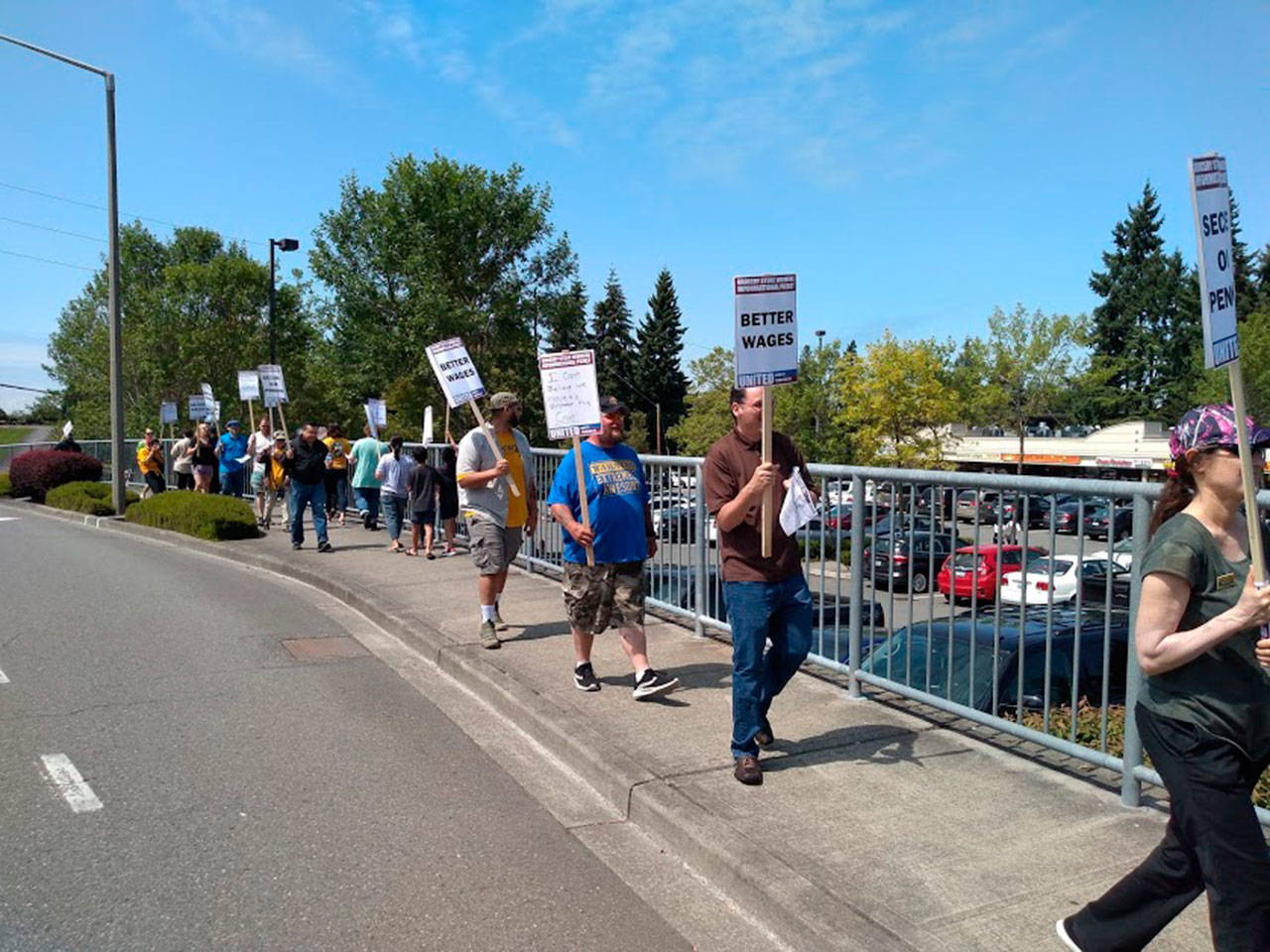Union workers picketed outside several Kroger-owned grocery stores this week, asking for living wages, scheduling security and greater workplace safety.
Workers from QFC, Fred Meyer, Safeway and Albertsons picketed at locations throughout King County and surrounding areas on July 31 and Aug. 1. The workers are represented by UFCW (United Food and Commercial Workers) and Teamsters unions. Contract negotiations between the unions and Kroger began this spring but stalled, said UFCW spokesperson Tom Geiger. One of the central asks from the union is increased wages.
“It’s a tough time for grocery store workers,” Geiger said. “While there have been some very major wage increases over the years, a lot of the money we’ve been able to negotiate has been going to shore up our pension since the 2008 Great Recession.”
Many workers’ starting pay is $12.10, 10 cents more than the statewide minimum wage. The union is asking for a $1.50 raise every year for three years while Kroger is offering 25 cent annual raises over the same period of time.
While workers at the bottom of the pay scale have seen raises in recent years due to increases in the state’s minimum wage, workers at the top haven’t seen significant raises in nearly a decade, Geiger said. In order to get to the top of the pay scale, or about $20 an hour, workers usually have to work about 7,000 hours.
The unions also are asking for predictability in scheduling, increased safety training and affordable health care. Geiger said a picket is an escalation in tactics, and if an agreement isn’t reached, union members could vote on a strike resolution in coming months. The union represents some 30,000 workers and pickets were scheduled for 32 locations around King, Pierce and Snohomish counties.
Jeffery Temple, corporate spokesperson for Fred Meyer, said in an email the company’s goal is to reach an agreement that “is good for our associates and good for our stores, too.”
“The most productive thing the union can do is to work with the company in a manner that positively addresses those concerns,” Temple said.
QFC and Fred Meyer offer health care and a pension benefit upon retirement, Temple said.
Ben Hartman is the dairy manager at the Northtown QFC in Bellevue and was at the picket outside of the Bel-East QFC along 145th Place Southeast on July 31. He said low wages for the area forces many of his coworkers to live far from where they work, some driving as far away as Kent. The high cost of living in the area means that many workers must also pick up second jobs.
Under-staffing leads many of his coworkers to do double or triple duties, often working in roles they’re not technically assigned to. Safety is an issue too, with Hartman saying he was hired into his position before Christmas with little to no safety training.
“We are not getting compensated for the amount of labor we do,” he said.
The next round of negotiations begins on Aug. 12, and Geiger said strikes could come if a deal is not reached.



